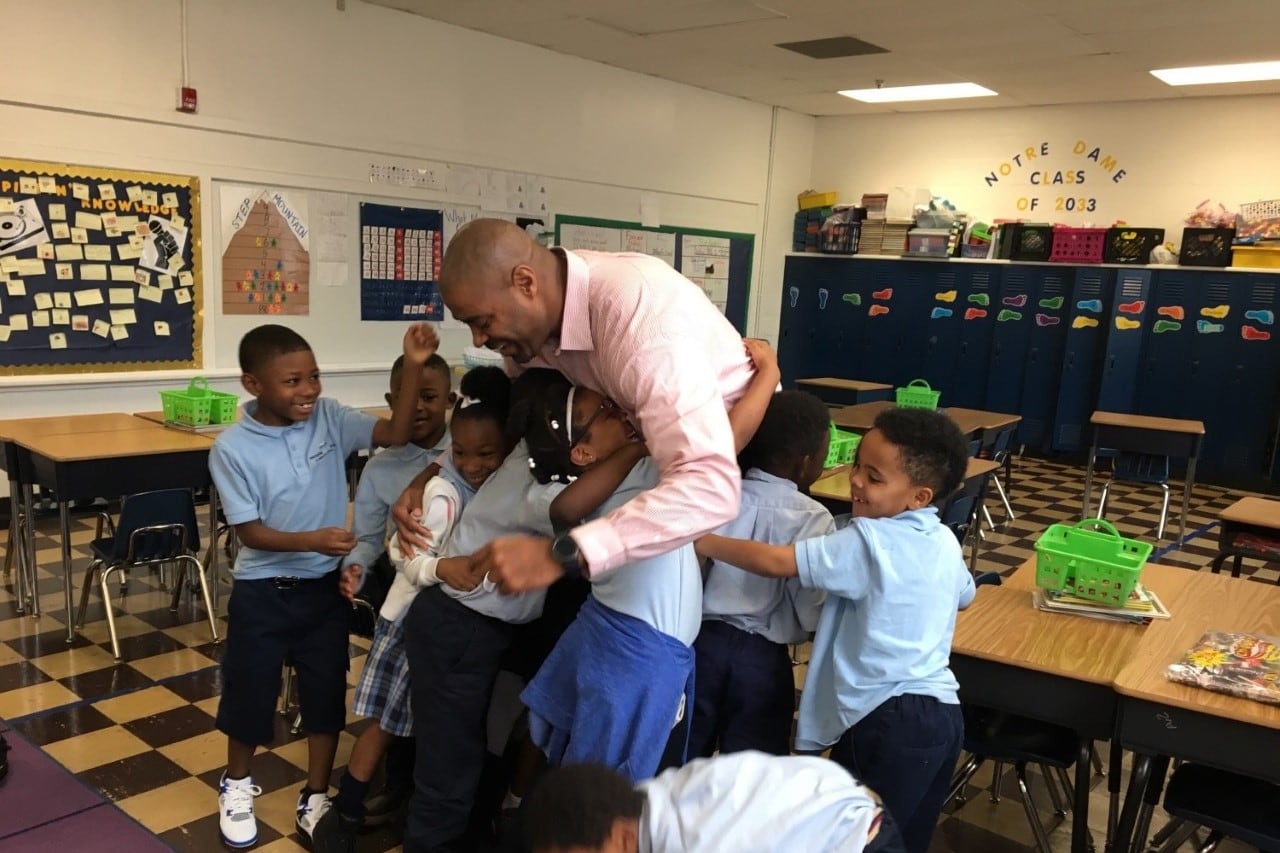Chris Coleman let out a hardy laugh when asked if he taught Lil Buck how to dance.
“What I didn’t do was discourage him. That’s what I didn’t do,” said Coleman, who taught the legendary dancer and actor Charles “Lil Buck” Riley geometry, not jookin, during his days at the now-closed Yo! Memphis Academy. “I didn’t want to discourage him from his dreams.”
“He would always tell me ‘Mr. Coleman, I just want to dance, you know.’ And I’m just like, ‘Okay, well dance, but do my math while you’re doing it,’” remembers Coleman.
Over his two decades in education, Coleman has taught hundreds of students, attempting to coach each one on how to reach the dreams they set for themselves.
“I think that’s the beauty of teaching,” he said. “You get to see how they flourish. Does that always happen? No. But that’s what you go into the work for.”
This year marks Coleman’s 21st year in education. Today, instead of mentoring students in the classroom, he’s coaching teachers and creating strategic plans as the executive director of Teach For America Memphis. This year, the organization celebrates its 15th year in Memphis, and Coleman is helping it develop an alumni program to recruit and retain veteran teachers. Coleman has been with TFA for eight years and began his tenure as executive director in February. Chalkbeat asked Coleman, who has master’s degrees in education and business, about his transition from teaching to administration and how he leads.
This interview has been lightly edited for length and clarity.
What was your first job?
A production supervisor at Tyson Foods in Arkansas. A line supervisor, basically, and it was a great experience for a number of reasons. I learned that I don’t like to work graveyard shifts! But I did also learn an important lesson: you never know what’s going on in someone’s life. So you have to be careful, especially when you’re in a position of power and authority. Don’t think you can just reign down on folks because now you’re the “boss.” You do have a responsibility — don’t get me wrong — but when you have discretion sometimes, use it. I learned a lot during those two-and-a-half months about how to listen and be with people because you can’t get the work done if the people won’t follow you.
What’s one strategy you use to help staff get on board with organizational change?
If it’s just wanting to connect or they want to talk, I say, “Now, what role do you actually want me to play in this conversation? I want to know so I know which way to engage in this conversation. Do you want me just to listen or more?”
If I’m trying to get them to buy into something, I explain what it is and then listen. I try to cut off the ‘let me respond’ instinct and say, “Let me just hear your thoughts.” In order to have anyone get on board with anything, you have to bring them along as partners in the process. You have to ensure their voices are heard. When developing our five-year strategic direction, we heard from staff, school partners, alumni, and community members. Their voices were key as we didn’t want to be prescriptive. You must have trust and strong relationship building to make this work happen.
In an article earlier this year, you mentioned, “I want to be a part of the work that illuminates the systems of inequity.” How have you done that so far in your time as Executive Director with Teach For America?
A: My role has been supporting our team as they equip our nearly 100 new teachers with the tools they need to provide the most inclusive and impactful educational experience for all children. We’ve seen the inequities at play, and they are vast. COVID-19 has shone a light on the inequities, especially for kids from low-income backgrounds, and there’s much work to be done, so they are not left behind.

What is the biggest misconception about Teach For America?
The biggest misconception is that our teachers come to Memphis, teach for two years, and then leave. While some teachers move to other roles due to a change in their career or life goals, the vast majority of our teachers, around 80%, choose to stay beyond their initial commitment each year. Today, we have nearly 700 Teach For America alumni working at all levels across the city. Because a student’s educational experience is impacted both inside and outside of the classroom, we’re both excited for those who choose to stay in teaching and those who choose to take what they learned from their time teaching to help fight systems of inequity outside the classroom. Having great teachers is just one piece of the puzzle. Teachers don’t impact healthcare, housing, or policy, so having alumni working in these sectors only helps our cause.
Who is one teacher or administrator who has inspired you, and how?
There was one at Ford Road Elementary [in Memphis]. His name was Mr. Jordan, and he told me, “You’re going to be good at math.” And I believed him. I didn’t know what he saw. He didn’t tell me what he saw. I just believed him, and so as a sixth grade kid, I started giving all my efforts from that point into being great at math.
While I was in college at Southern Arkansas University, I did hit that place where it was a struggle in some of my math classes, and I was about to drop calculus. But Ms. [Joyce] Keenan told me she wasn’t gonna let me quit. She said, “I won’t let you drop. You keep coming to me during my office hours, and we’ll work through it,” and those are the qualities that I think make great teachers. Like I tell my students all the time, you’ll probably remember nothing that I teach — especially when it comes to the content, some of this is just hoops you’ve got to jump through — but I hope during your time in my class, that there’s something that endures that will actually impact your life far beyond the content that I’ve taught you.







